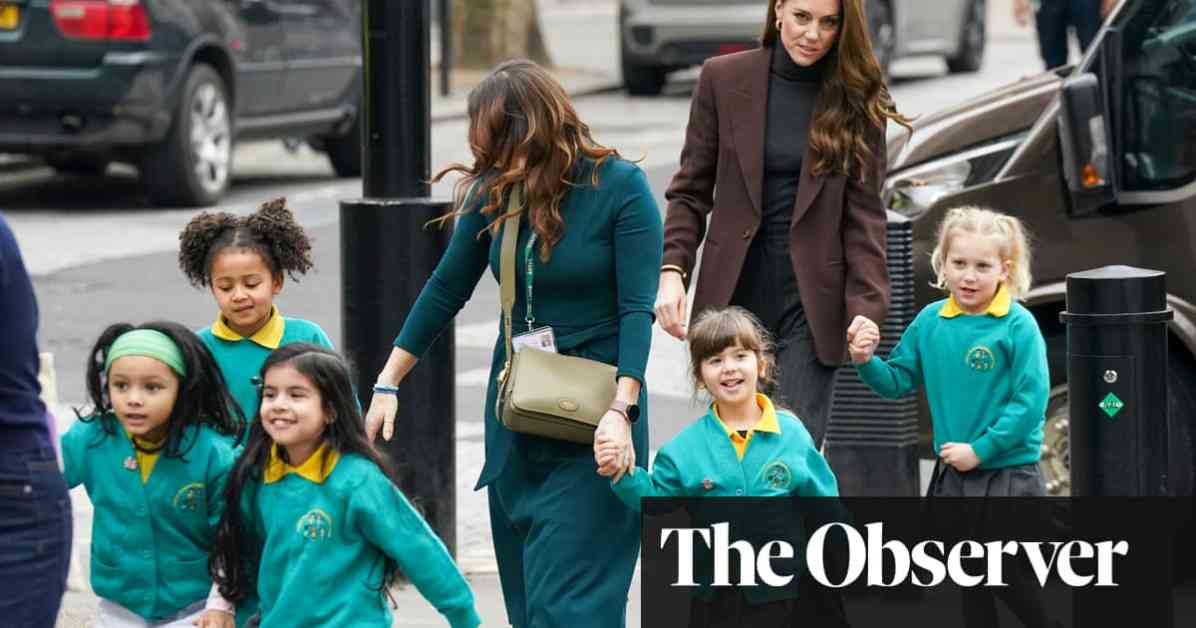In the world of British royalty, the dynamics have shifted significantly over the decades. Gone are the days when members of the royal family were confined to ceremonial duties and superficial engagements. Today, figures like Prince William and Princess Catherine, the Duke and Duchess of Cambridge, are spearheading a new era of political diplomacy that transcends the traditional boundaries of their roles.
William Wyler’s iconic film Roman Holiday, released in the midst of Queen Elizabeth II’s coronation, captured the essence of the inner turmoil faced by royal figures. The struggle between duty and personal desires has long been a central theme in the lives of royals, including the late Princess Margaret.
Fast forward to the present, and the royal family is engaging in a different kind of mission. No longer content with mere symbolism, they are actively campaigning to address critical societal issues such as food poverty, domestic violence, homelessness, and climate change. At the heart of these efforts are Prince William and Princess Catherine, who are constantly seeking ways to make a tangible impact on the world around them.
Transforming Tradition: The Political Landscape of British Royalty
While William and Catherine are adamant about not politicizing their roles, their initiatives often intersect with political discourse. Their work has the power to influence public policy, shape public opinion, and drive resources towards pressing social issues. This delicate balance between royal neutrality and political impact is a tightrope that the couple must navigate with precision.
Craig Prescott, an expert on the constitutional role of the monarchy, emphasizes the importance of maintaining a strategic distance from direct political interference. While the royals can advocate for change and raise awareness on critical issues, they must refrain from making explicit demands on government policies to avoid straying into partisan territory.
Despite the careful dance around politics, both William and Catherine have not shied away from expressing their views on pressing matters. Catherine, in particular, has championed early childhood development as a cornerstone of her philanthropic efforts. By shedding light on the importance of emotional and social skills in the formative years of a child, she aims to revolutionize the way children are raised and nurtured.
Modern Monarchy: A Delicate Balance of Tradition and Innovation
The evolution of the British monarchy traces back to centuries of constitutional restructuring, culminating in a system where political power is decentralized from the crown. While the sovereign no longer holds absolute authority, the royal family continues to wield soft power through their philanthropic endeavors and public engagements.
Prince Charles, in his quest to redefine the royal role, has set the stage for a new approach to social leadership. His emphasis on environmental sustainability and youth empowerment has laid the groundwork for a more impactful and purpose-driven monarchy. William and Catherine, following in his footsteps, are focusing on a select number of high-impact campaigns that resonate with contemporary challenges.
As the younger generation of royals takes center stage, the landscape of royal duties is shifting towards a more focused and impactful direction. By prioritizing fewer engagements with a deeper resonance, William and Catherine are setting a new standard for royal philanthropy in the 21st century.
In a world where public perception and relevance are constantly scrutinized, the royal family’s foray into substantive social issues is a double-edged sword. While critics may view their efforts as mere vanity projects, supporters argue that the soft power of the royals can catalyze meaningful change and elevate critical causes on a global stage.
As the Duke and Duchess of Cambridge continue to champion their respective initiatives, the delicate balance between tradition and innovation remains at the core of their royal journey. With a keen focus on social impact and transformative change, they are redefining the role of British royalty in a rapidly evolving world.
This is the end of the rewritten article.







